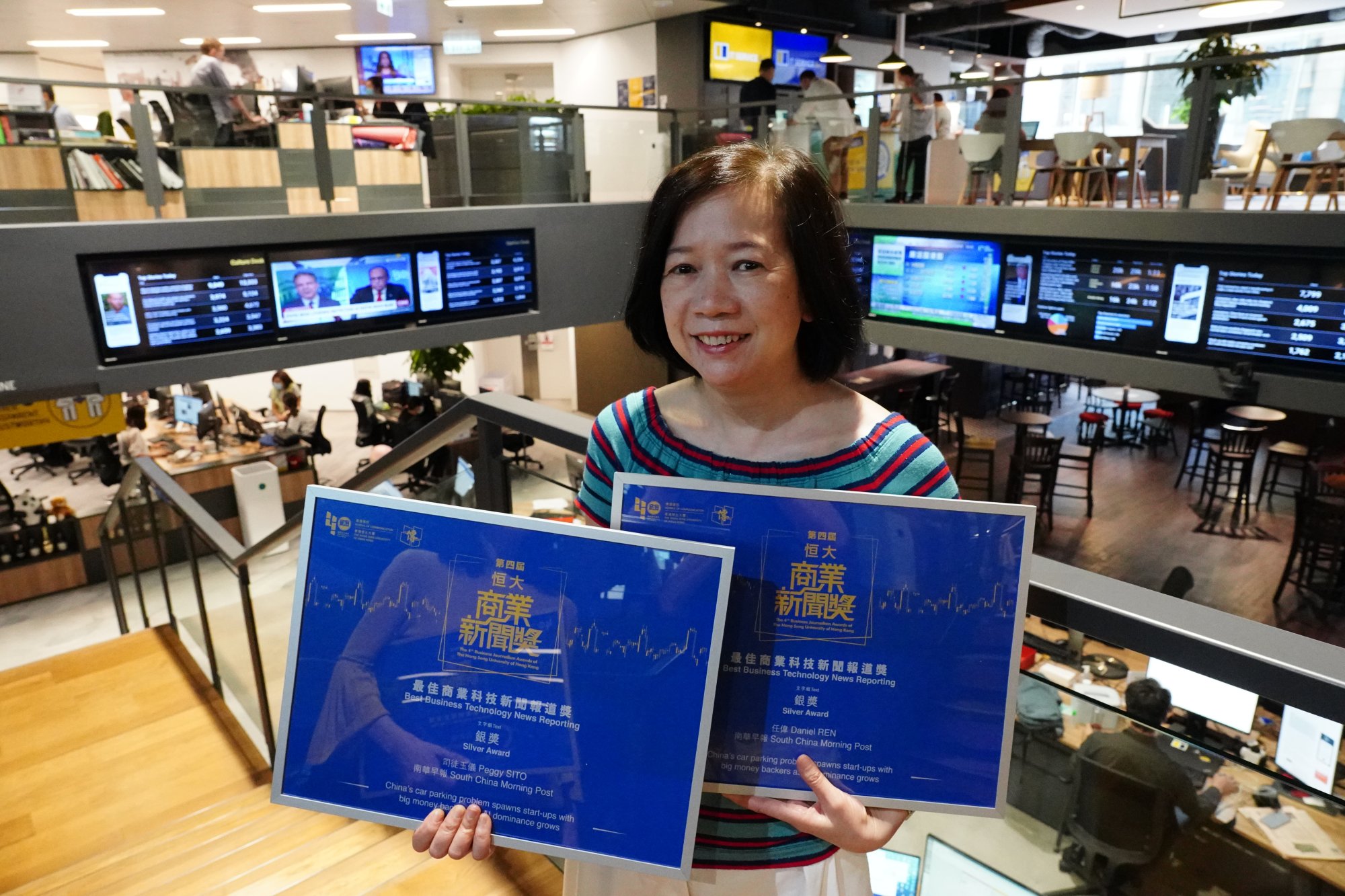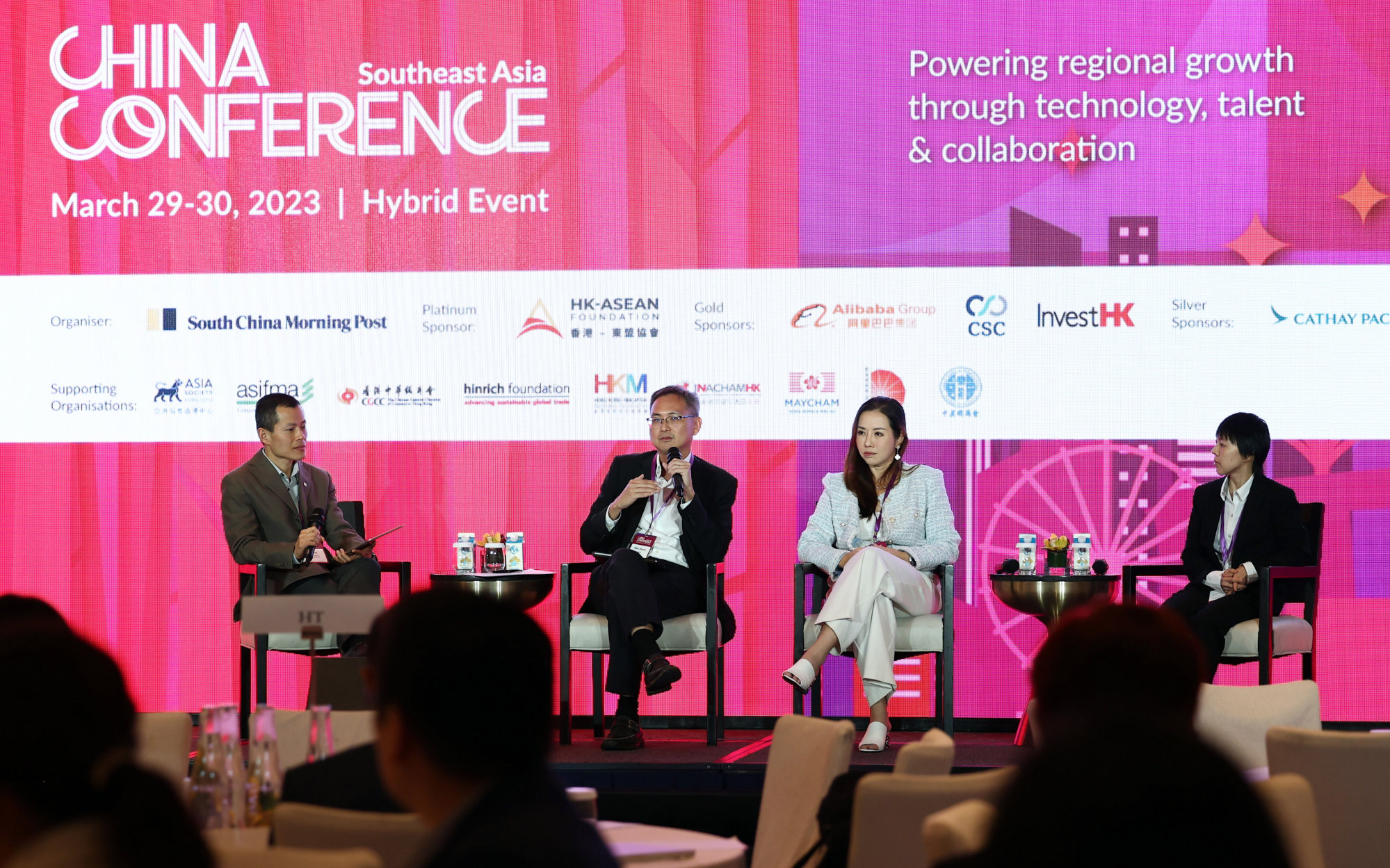
120 years of SCMP: Hong Kong’s property, finance, ESG and technology through pens and strokes of our journalists
- Peggy Sito, Enoch Yiu, Eric Ng and Bien Perez are among the longest-serving veterans at the South China Morning Post
- With more than a century of experience between them, their stories recount Hong Kong’s transformation in real estate, finance, ESG and technology
It was an assignment that involved numerous searches of company registrations, corporate filings, dozens of interviews and phone calls, in addition to her duty as the Deputy Business Editor at the South China Morning Post.
It was a story that won Sito State Street’s “Journalist of the Year” award that year, one of many in her three-decade career at the Post. “This assignment was particularly interesting [because] the process of uncovering the details bit by bit was exciting,” she said. “The happiest moment came when the article received the [State Street] award.”
Here’s an unusual way to divvy up the world’s costliest building: pick ping pong balls from a hat
The unusual story was the capstone at the peak of a bull run in the world’s priciest property market, when cheap funds fuelled an insatiable hunger for deals. In the three decades since her maiden assignment in 1994 to cover price rigging in Hong Kong’s land sales, the Post’s Deputy Business Editor Peggy Sito witnessed major transformations in the city’s real estate industry.
Even the process of gathering data for real estate reports changed. “When we [reported about] developers’ plans to convert industrial land into residential development, we [needed] strong relationships with the Town Planning Board to obtain the information,” she said. “Nowadays, the data has become much easier [to access] via government websites.”

During the 1998 Asian Financial Crisis, Hong Kong’s de facto central bank poured HK$118 billion into the currency market to defend the local dollar’s peg against the US dollar. The two-week battle was the “most memorable reporting experience, and one of the most exciting time for me as a business reporter,” Yiu said.

The merger “ended the day of the exchange as a private club for brokers,” as described by former regulator Anthony Neoh, and was “a major step in turning Hong Kong into a leading fundraising centre,” she said.
How the Exchange Fund has protected Hong Kong dollar peg, fought off Soros
The profile of Hong Kong’s market changed. From Tsingtao Brewery’s 1983 listing of the so-called H-shares, mainland Chinese companies would now make up 80 per cent of the exchange’s turnover.

And short-sellers are as obsessed with driving a wedge into the city’s currency peg today as they were in 1998 when Yiu witnessed the HKMA’s battle.
His first reporting assignment was the annual meeting of Tomorrow International Holdings, a small electronics distributor that transformed itself into a property developer called Talent Property Group 13 years later.
The change, reflected in the changes in business focus and shareholders, was “typical of many small-cap companies,” Ng said.

Ng was assigned to cover energy in 2000, as China Petroleum & Chemical Corporation (Sinopec) prepared to raise capital through a Hong Kong IPO. That was followed by PetroChina two months later, and China National Offshore Oil Corporation (CNOOC) in 2001.
The listing of the three oil giants, dubbed the “three barrels of oil” by the Chinese media necessitated an energy beat in Hong Kong.
“Unlike the [real-time news agencies], we did not have to report on energy trade data as our readers were mostly retail stock investors,” Ng said. “Hong Kong trailed Singapore in the development of oil and gas related manufacturing and trading, as we do not have industrial parks for oil refining, chemicals production and trading.”

Ten years earlier, Ng ventured to Zibo city in Shandong province to investigate claims that Dongyue Group was overproducing ozone-depleting refrigerant gases, and then destroying them to earn carbon credits to resell.
It was “my most challenging and memorable assignment,” he recalled. “I left the interview in a hurry with a moderate dose of fear of potential reprisal.”
How paper trails and audits are helping China battle greenwashing scourge
The Post’s pivot from energy coverage to ESG focus mirrored Hong Kong’s expansion from a financial centre to a ESG hub, where “some brokerage analysts now also cover ESG”, while others “changed their titles to reflect the trend,” he said. HSBC’s former regional head of utilities is now called Head of Energy Transition (Asia-Pacific).
Can Hong Kong help cut through the alphabet soup of global ESG rules?
When will Hong Kong’s next Octopus moment occur?
“The rapid development of the internet, social media and 24/7 news coverage have made it more challenging to cover breaking news and write in-depth analyses of hot topics like AI and the impact of geopolitical tensions on China’s tech development,” Perez said.

Still, those same challenges also helped expand the sources of credible information and analyses that the SCMP’s tech desk can tap into.
The Post’s Digital First initiative helped to “sharpen the newsroom’s capabilities in determining how and which stories to cover, follow-up or investigate,” he said. “This now involves more targeted use of videos, podcasts, photos, graphics and illustrations.”
With technology blossoming into multiple areas, are there major misses for Hong Kong?
Fully developing the city’s potential in tech research and development and tech-related financing will need the active participation of enterprises in the Greater Bay Area. But some regulatory restrictions must be adjusted to reflect the commitment to enhance the city’s role as part of the GBA. Hopefully, current geopolitical tensions will also ease sooner than later to help drive increased tech activity in Hong Kong.

